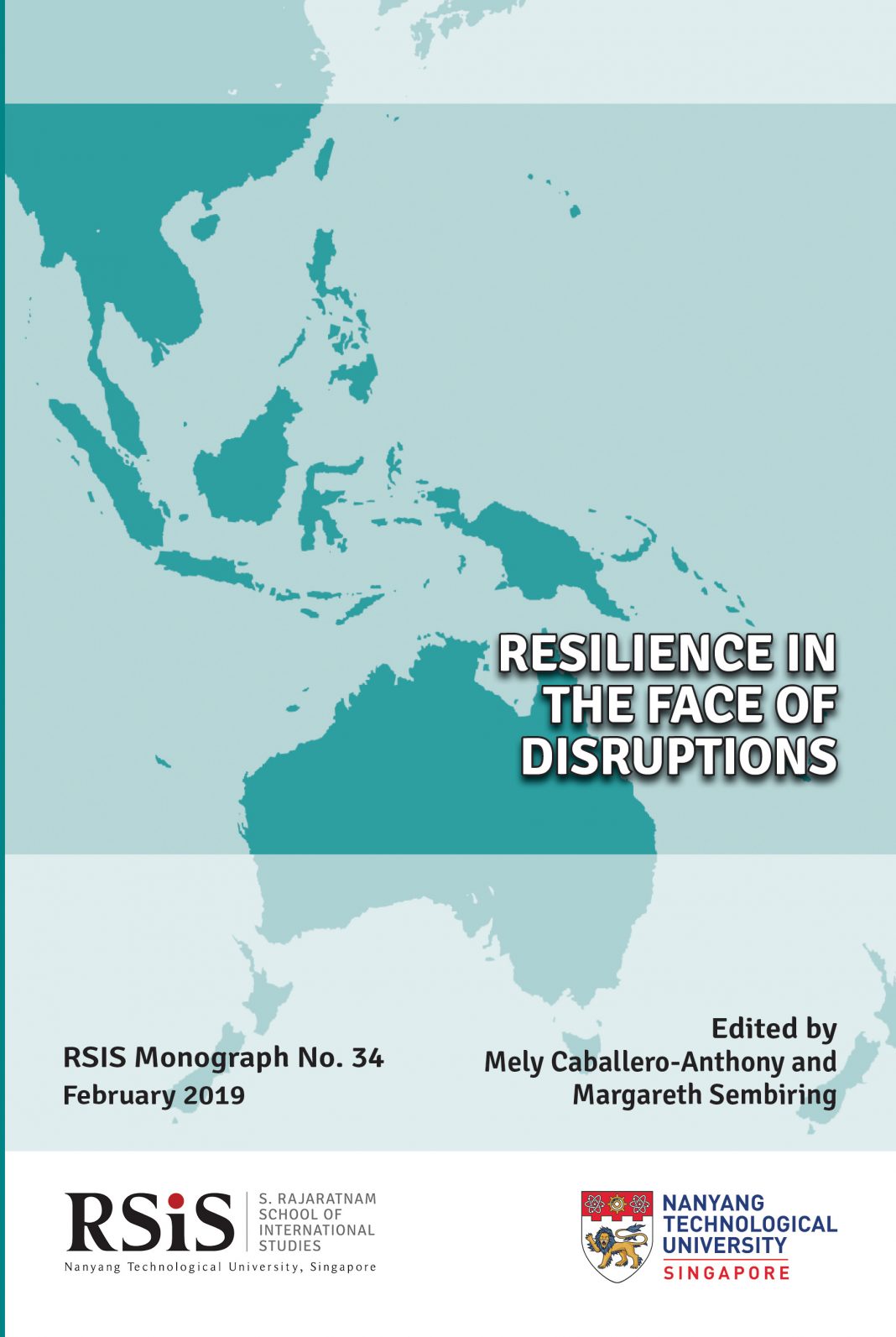Against a rapidly changing global environment, societies are now having to deal with a host of challenges to their security and way of life. Many of these challenges had a significant disruptive impact on human security. In the 21st century, how societies respond to disruption(s) and manage their transformative effects would largely be defined by the extent to which they are able to comprehend the complex consequences of such disruption on their social, economic and political institutions that shape their everyday lives.
A key element in dealing with disruption is building resilience. This was the key theme of the 3rd Annual Conference of the Consortium of Non-Traditional Security (NTS) Studies in Asia, held on 27-28 March 2018, in Singapore. This monograph compiles the papers presented by members of the Consortium. They examine the kinds of human insecurities and uncertainties brought on by disruptions, analyse the current responses by states and other actors, and point to specific recommendations on how societal resilience can be built in the face of disruptions.
Disclaimer: This article was first published in the S. Rajaratnam School of International Studies (RSIS) Singapore’s Monograph No 34 in February 2019, edited by Mely Caballero-Anthony and Margareth Sembiring. The link to the full publication can be found here: Click here





